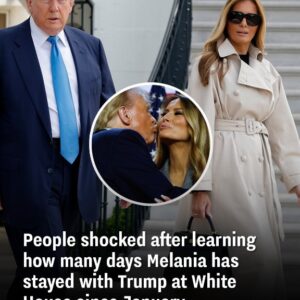China’s Retaliatory Tariffs and Trump’s Stern Message: A Comprehensive Overview
n a recent exchange that has captured global attention, former President Donald Trump has voiced strong criticism against China, accusing the nation of being the “biggest abuser” amid ongoing tariff disputes. Despite clear warnings from Trump, China moved forward with retaliatory measures in response to U.S. tariffs, igniting a complex battle of trade policies, legal challenges, and economic strategy that continues to impact global markets.
The U.S. Tariff Initiative: Setting the Stage
On April 2, former President Trump announced a significant increase in tariffs on imported goods from around the world—a move he declared would mark a “Liberation Day” for America. Trump described this day as a turning point, claiming it would herald the rebirth of American industry by curbing what he called years of economic exploitation by foreign competitors. Under the new policy, Trump imposed a 25 percent tariff on all foreign-made automobiles, while a baseline 10 percent tariff was levied on imports from all countries that did not adhere to the United States-Mexico-Canada Agreement (USMCA). For nations that were seen as non-compliant, the tariffs were raised to 25 percent, with specific rates set at 10 percent for the United Kingdom and 20 percent for goods from the European Union.
The goal of these measures was clear: to rebalance trade relations by penalizing countries that, according to the Trump administration, had taken advantage of the United States for decades. By targeting key sectors and imposing steep duties, the U.S. aimed to generate revenue and protect domestic industries from what was seen as unfair foreign competition.
China’s Response: Escalation and Legal Action
In response to these aggressive tariffs, China did not remain passive. Instead, the nation opted for a robust retaliatory approach. On April 10, China imposed a 34 percent tariff on a wide range of U.S. goods. This move was part of a broader strategy to counteract the impact of U.S. tariffs and to signal its unwillingness to yield to American pressure. The severity of China’s retaliatory tariff, which reached as high as 54 percent on certain items, underscored the intensity of the trade dispute.
A spokesperson from China’s Ministry of Commerce explained that the retaliatory tariffs were not only a defensive measure but also a response to what Beijing described as violations of World Trade Organization (WTO) rules by the U.S. administration. China has taken the additional step of filing a lawsuit with the WTO, asserting that the tariffs “seriously violate WTO rules” and “undermine the rules-based multilateral trading system and the international economic and trade order.” This legal challenge has added an extra layer of complexity to the dispute, positioning the matter as one that transcends bilateral relations and enters the realm of global trade governance.
Trump’s Reaction: Defiant and Unyielding
Throughout these developments, former President Trump has remained vociferous in his criticism of China’s actions. Using his social media platform, Truth Social, Trump has expressed mounting concern over the impact of these tariffs on the American economy. However, he has also highlighted what he perceives as positive economic outcomes stemming from the tariffs. In a series of posts, Trump noted that oil prices and interest rates had decreased, food prices were down, and inflation was notably absent. He argued that, despite China’s retaliatory measures, the U.S. was reaping billions of dollars in tariff revenue each week
Trump’s commentary emphasized a narrative of American resilience. He contended that for decades, the United States had been exploited by other nations, with China being singled out as the “biggest abuser” of the trade system. According to Trump, China’s markets were now suffering, and its decision to increase tariffs by an additional 34 percent was seen as a direct response to his warning against retaliatory measures. “They’ve made enough, for decades, taking advantage of the Good OL’ USA!” Trump declared, urging Americans to “MAKE AMERICA GREAT AGAIN!” His remarks were directed not only at China but also at those who, in his view, had allowed previous administrations to negotiate unfavorable trade deals.
Economic and Global Implications
The trade dispute between the United States and China has far-reaching implications for the global economy. Economists warn that tariffs, especially when imposed unilaterally and escalated through retaliatory measures, can disrupt global supply chains, increase production costs, and ultimately lead to higher prices for consumers. While Trump has pointed to short-term benefits—such as lower oil prices and reduced interest rates—many experts caution that sustained trade tensions could hinder economic recovery and destabilize international markets.
Furthermore, the legal challenges posed by China at the WTO introduce a level of uncertainty. Should the WTO rule in favor of China, the resulting changes to international trade norms could force the United States to reassess its tariff policies. Conversely, if the U.S. position is upheld, it could embolden the current approach and set a precedent for future trade disputes. The outcome of these legal battles will be critical in determining the long-term trajectory of U.S.-China trade relations and, by extension, the health of the global economy.
The Broader Diplomatic Context
The tariff dispute also has significant diplomatic ramifications. China’s strong response has been interpreted by many as a repudiation of what it sees as unilateral protectionism by the United States. Foreign affairs spokesperson Lin Jian stated that by putting its own interests above international rules, the U.S. was engaging in acts of unilateralism, protectionism, and economic bullying. According to Jian, pressure and threats are not viable methods for resolving differences between nations, and China remains committed to defending its legitimate rights and interests on the global stage.





